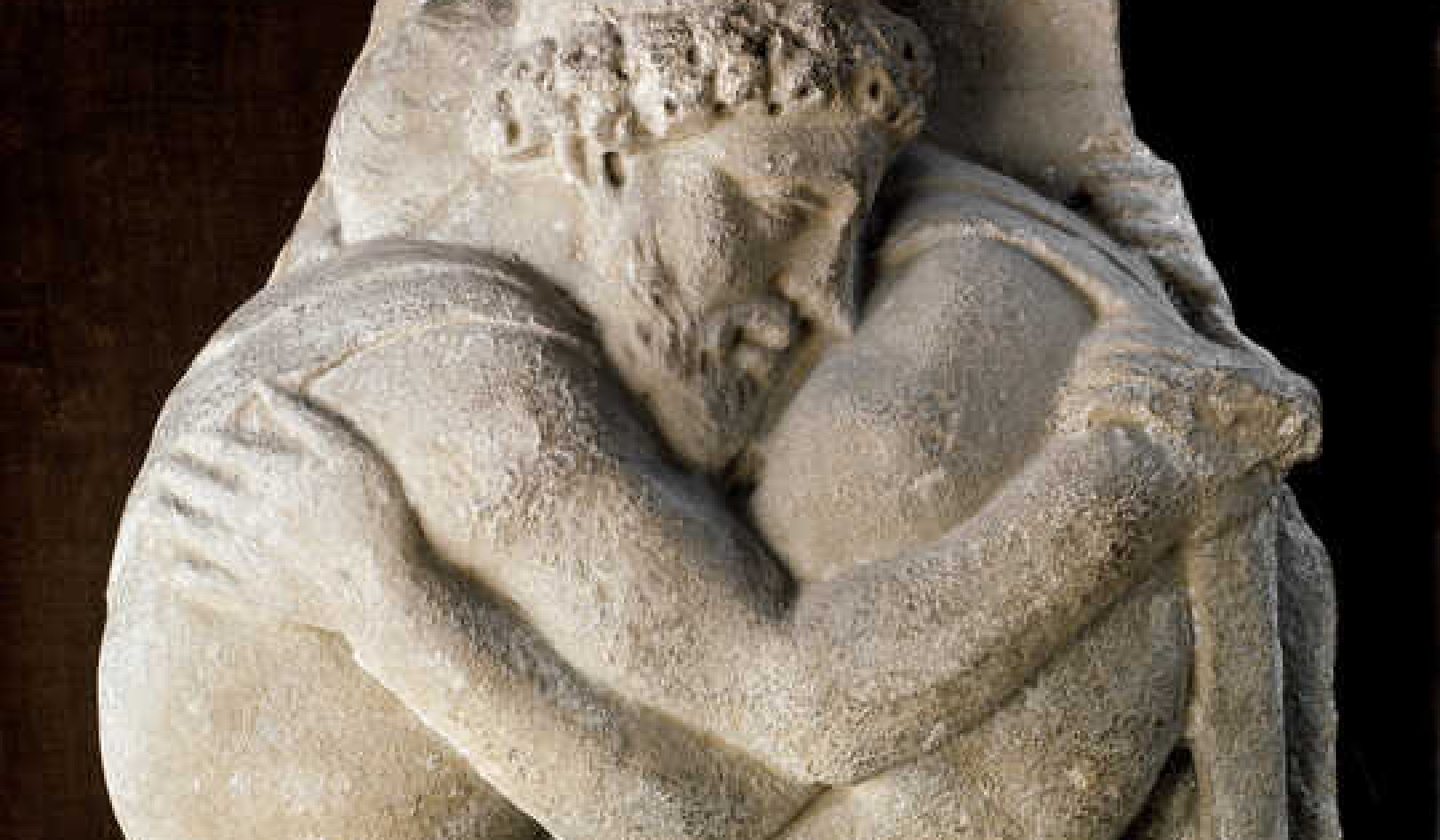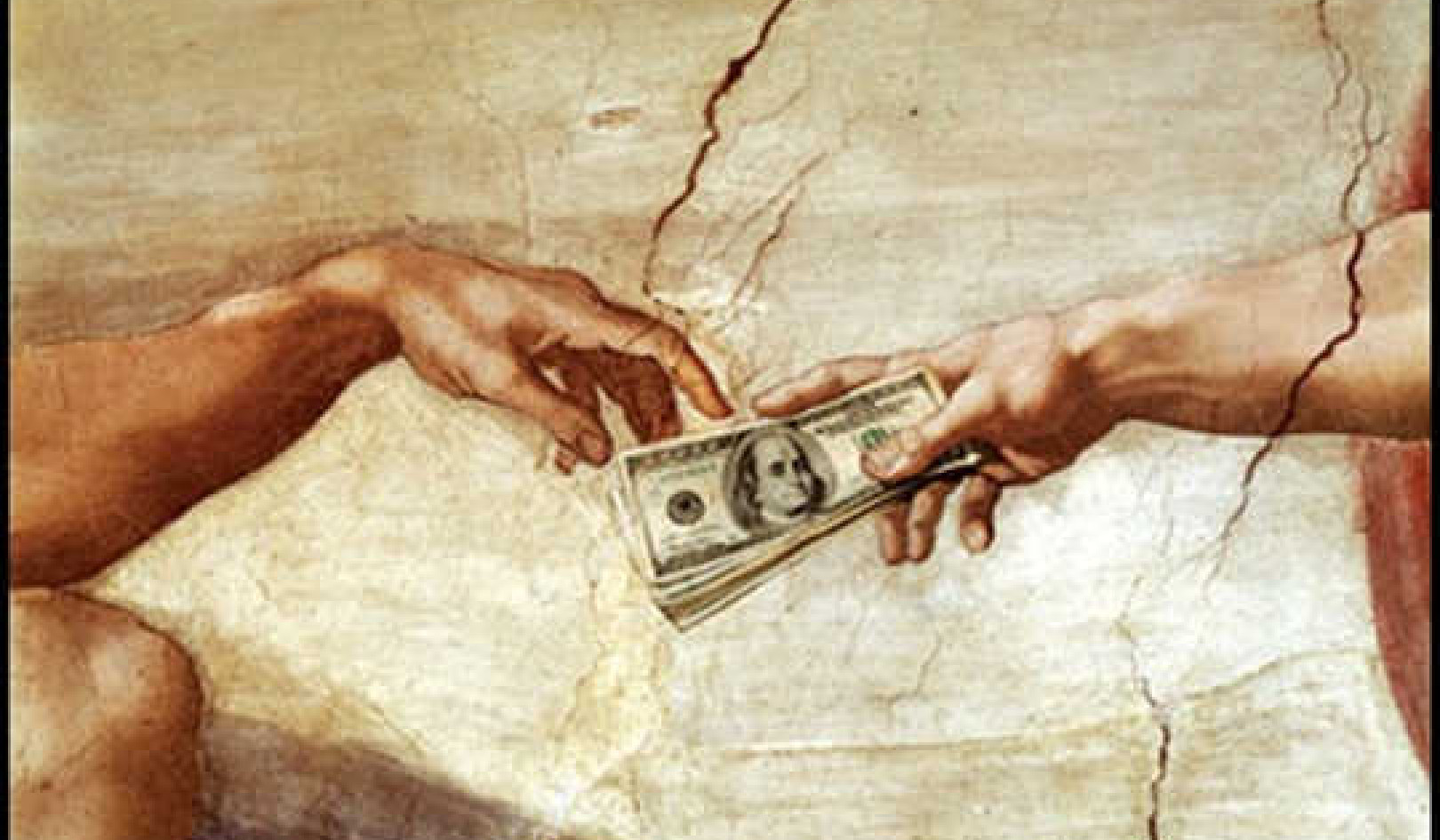
Sometimes my life is hectic, as I fly around the world on Dharma business. The difference between me and the business manager sitting next to me on the plane is that I have a refuge within and can sit in that quiet silent place. I feel connected with all the houses and people passing below, because each individual is a manifestation of the total principle.
We are linked with everything, moment to moment. What each individual does affects the whole. As we say in Zen, “When a cow is fed in China, a horse is satisfied in India.” A simple formula for handling relationships is to remember that in principle, we are always one, though in the world of form, we are also different. Problems arise when this truth is not lived.
Being the Buddha, Being Love
When speaking of relationships, the safest thing to relate to is always Buddha. We can address every being we meet — not only human beings but also animals — as essentially Buddha. We talk with Buddha, eat with Buddha, drink with Buddha, go to sleep with Buddha, and wake up with Buddha. In Western terms, we speak of being in the presence of God or meeting God all the time.
In the phenomenal world, we make a shift from self-centeredness, where we are constantly defending ourselves, to realizing there is nothing but Buddha or mind. Everybody defends their own ideas, perceptions, or projections, but the words themselves have no intrinsic reality. People fight about the meaning of God or Buddha, of “this” or “that,” but how far does it get us?
I Can't Believe It's Not-Buddha!
When we begin to live in the reality that all beings are Buddha or God or whatever we name this highest principle, we are never out of proper relationship. Though many people in the world believe otherwise, we can never be not-Buddha. The Buddhist way is not to convert, but to raise the consciousness of others by our own deeds. When our minds are at peace, everything in the world works correctly.
The sun and moon have never been out of order; things just get shuffled up a bit sometimes, because of our misdeeds. This doesn’t mean that we turn away from the world. Rather, we develop the correct view, understanding that things are here for just a brief moment and then they are gone.
The whole world we perceived and just talked about is already past, so what is the use of fighting over it? Indeed, we should just smile and enjoy being in the presence of all these Buddhas. If some are a little confused or stuck somewhere, the kind thing is not to blame or punish, but to help them get free.
How Can I Be Happy? Be Love, Be Buddha
 The youngest member of our Institute is now one year old and he truly meditates. When he was still in his mother’s tummy, he was sitting with her. When the mother was in labor, the doctor said, “We are going to have to turn this baby around, because he’s sitting up in you.” Just minutes later, the baby suddenly made a somersault and turned around. He came out just at the right time.
The youngest member of our Institute is now one year old and he truly meditates. When he was still in his mother’s tummy, he was sitting with her. When the mother was in labor, the doctor said, “We are going to have to turn this baby around, because he’s sitting up in you.” Just minutes later, the baby suddenly made a somersault and turned around. He came out just at the right time.
After the baby was born, I told him, “You might as well be happy, because the alternative is to be unhappy, and who wants to be unhappy? You might as well be kind, because the alternative is to be unkind, and who wants to be unkind? You might as well be peaceful, because the alternative is to be angry, and who wants to be angry?”
Might As Well Be Happy, Be Love
We can say the same thing to ourselves. We might as well be happy, because the alternative is to be unhappy. We might as well be friendly, because the alternative is to be unfriendly.
When we are kind to others, laughing and joyful, we are doing the best service to ourselves. Our energy and patience grow and we are able to affirm others. There is nothing else to learn or teach. The result of all the struggles we go through in meditation is to be love. That is actually what every religion teaches.
We begin by accepting, maybe by way of faith, that ultimately our mind is Buddha mind. We take a step: from now on, I am causing love. I am causing correct relationship. We remain completely open toward all. Our attitude of being loving and kind extends to all beings, including inanimate objects. I proclaim myself to be a secret agent.
Standing in line at the post office, I do my secret agent job: radiating good feelings towards everyone, just standing there smiling and being at peace with myself. Relaxing into the knowledge that everything is already OK suddenly makes the people around you OK, too.
All Beings Are Buddha
When we are in a state of being Buddha, we are not reactive toward others, but always act from knowledge, realization, and inner truth. Buddha is mind, free from conditioning. The pristine mind, inner freedom, is our true state.
As we live the Buddhist wisdom, the world and everything in it changes. Gone are the dualistic ways of thinking, with this side and that side. We cannot be entirely free from the effects of karma created in the past; that has to spin itself out. But when we know that there is no real self, even when we suffer some pain, we see it ultimately as an illusion.
Check it out. We live every moment completely aware and don’t create more karma. We see all beings as Buddha.
Reprinted with permission of the publisher,
Snow Lion Publications. http://www.snowlionpub.com©1995, 2010 Karma Lekshe Tsomo.
Article Source
Buddhism Through American Women's Eyes
(a collection of essays by various authors)
edited by Karma Lekshe Tsomo.
 Thirteen women contribute a wealth of thought-provoking material on topics such as bringing Dharma into relationships, dealing with stress, Buddhism and the Twelve Steps, mothering and meditation, the monastic experience, and forging a kind heart in an age of alienation.
Thirteen women contribute a wealth of thought-provoking material on topics such as bringing Dharma into relationships, dealing with stress, Buddhism and the Twelve Steps, mothering and meditation, the monastic experience, and forging a kind heart in an age of alienation.
Click here for more info or to order this book on Amazon.
About the Author of this excerpt (Chapter 2)
Prabhasa Dharma Roshi (1331-1999) received her early training in the Japanese Rinzai Zen tradition, in which she was ordained a nun and empowerd as a lineage teacher. She later received Dharma transmission in the Vietnamese Zen tradition. She trained many students in both the U.S. and Europe, and founded the International Zen Institute of America and Europe.
About the Book's Editor
 Karma Lekshe Tsomo is an associate professor of Theology and Religious Studies at the University of San Diego. She studied Buddhism in Dharamsala for 15 years and completed a doctorate in philosophy at the University of Hawai'i with research on death and identity in China and Tibet. An American Buddhist nun practicing in the Tibetan tradition, Dr. Tsomo was a founder of Sakyadhita International Association of Buddhist Women (www.sakyadhita.org). She is the director of Jamyang Foundation (www.jamyang.org), an initiative to provide educational opportunities for women in developing countries, with twelve projects in the Indian Himalayas and three in Bangladesh.
Karma Lekshe Tsomo is an associate professor of Theology and Religious Studies at the University of San Diego. She studied Buddhism in Dharamsala for 15 years and completed a doctorate in philosophy at the University of Hawai'i with research on death and identity in China and Tibet. An American Buddhist nun practicing in the Tibetan tradition, Dr. Tsomo was a founder of Sakyadhita International Association of Buddhist Women (www.sakyadhita.org). She is the director of Jamyang Foundation (www.jamyang.org), an initiative to provide educational opportunities for women in developing countries, with twelve projects in the Indian Himalayas and three in Bangladesh.


























